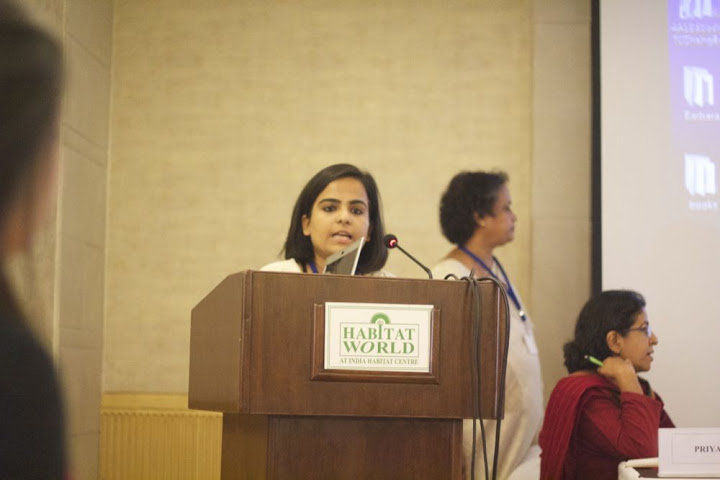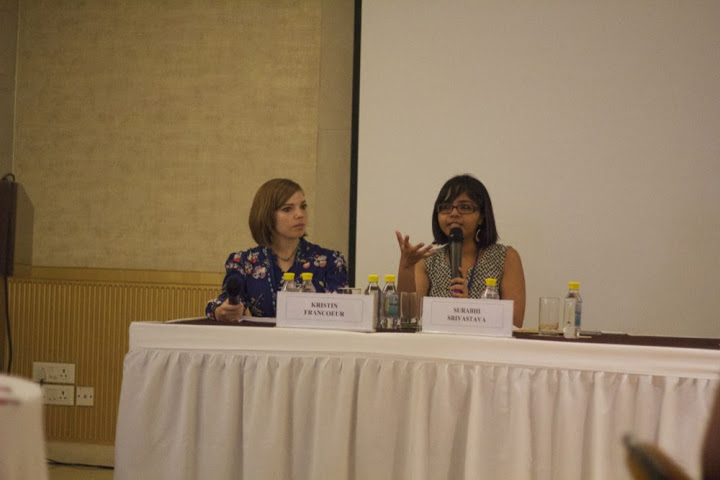Sex selection vs safe abortion rights: how did we get here and where do we go now ?
ASAP and CREA www.creaworld.org collaborated to host a one day meeting in New Delhi on Sat 20th June to share the findings of some studies on the issue , as well as to generate discussion on the politics of the two issues, the ground realities and the impact this is having on women’s right to safe abortion in India.
Shweta Krishnan spoke about her study with key stakeholders in the field and the analysis of the trajectories of both movements, the reasons for their conflation and what we could do in the future to strengthen women’s rights.
Samyak , an NGO from Pune working on  gender and communications, found that doctors in parts of Western Maharashtra were denying abortion services to women due to the fear of harassment by the local implementing authorities for the PCPNDT Act. Pritam Potdar also interviewed 12 women who had been denied such services by legal providers and discovered that most of them were forced to continue an unwanted pregnancy.
gender and communications, found that doctors in parts of Western Maharashtra were denying abortion services to women due to the fear of harassment by the local implementing authorities for the PCPNDT Act. Pritam Potdar also interviewed 12 women who had been denied such services by legal providers and discovered that most of them were forced to continue an unwanted pregnancy.
A panel discussion followed where speakers shared stories form the ground on the reality of the anti –sex selection campaign and the serious barriers this is creating for women’s right to safe abortion.
We heard from Kerry McBroom about the drop in availability of Medical Abortion pills in Mumbai and Ragini shared photos of government posters from Haryana which said ‘feticide is a grave sin’ and ‘feticide is a crime’. This kind of messaging conflict in verbal as well as visual media has been an ongoing problem. Anand Tamang from CREHPA informed us that foreign funded groups like ‘Voice of the Fetus’ are now making their presence felt in Nepal and we should be aware of what we are up against.
Surabhi Srivastava and Kristin Francouer spoke about the ongoing CREA CommonHealth project on creating common ground among those working on both these issues.
In closing Prof Leela Visaria emphasized that the sex ratio is only one of the many dimensions of gender discrimination and should not be addressed in isolation. Sonali Regmi spoke on the next steps and called for a need to remember that women are still dying of unsafe abortions. We are being overwhelmed at present by the issue of sex selection, but the reality is that there are still so many barriers to safe abortion. The Indian Penal Code still criminalizes it.
Suchitra Dalvie said in her closing remarks that we need to hold governments accountable for ensuring access to safe and acceptable abortion services in the public sector. Attempting to regulate only this one service in the private sector is unlikely to succeed without a comprehensive regulatory mechanism. She also noted that as feminists and activists, we always say ‘ nothing for us without us’ but when it comes to this issue of sex selection we routinely hold meetings and discussions without bringing in the perspective of the women who are seeking or obtaining sex determination and selection. She also pointed out that we like to believe that we have moved away from target based programming since the ICPD, but with the sex ratios we are again focussing on numbers and we need to look seriously at other issues beyond that and work for women’s empowerment in a holistic way.










